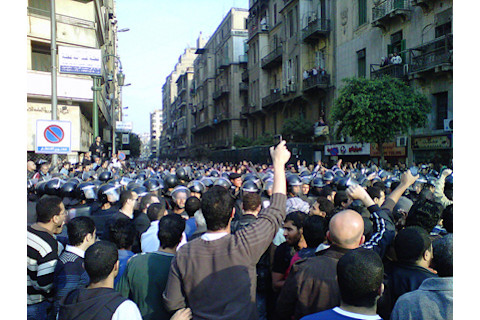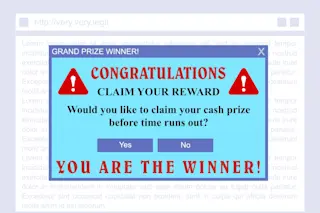
You know it's getting serious when people aren't using Facebook. The social networking giant now says it has noticed significantly reduced traffic from Egypt as a result of the Egyptian government's attempt to shut down its country's Internet this week to quash political protests. Though we've seen governments attempt to censor the Internet in times of uprising before (like during the 2009 Iranian election), Forbes says this is "the first time in modern history a major Internet economy is being shut down."
Mobile phone networks have reportedly been disrupted, leaving millions without access to text messaging or phone calls. The country’s key Internet Service Providers are also off the air, says James Cowie, the chief technology officer of Internet monitoring firm Renesys on his blog. “Virtually all of Egypt’s Internet addresses are now unreachable, worldwide. [Forbes]
Indeed, Cowie says, this is something new compared to other government internet censorship
:
Similar demonstrations and Web outages are occurring in Tunisia, though Cowie noted that the Egypt Internet downtime "is a completely different situation from the modest Internet manipulation that took place in Tunisia, where specific routes were blocked, or Iran, where the Internet stayed up in a rate-limited form designed to make Internet connectivity painfully slow." [PC Magazine]
Thoughts of a government being able to just "turn off the Internet" has people in other countries frightened, but it was particularly easy to achieve in Egypt.
Egypt's governmental already exercises heavy control over national Internet service, supplied by a only handful of providers compared to the hundreds (maybe even thousands) of providers here in the U.S. See the difference? When a government like Egypt's decides it wants to pull the plug, it can do just that almost simultaneously because of the small number of ISPs – a task that would be entirely impossible in the U.S. [TIME]
Nevertheless, Egypt's Internet isn't totally cut off. The most recent estimates hold that the government shut down about 88 percent of online activity. But some dial-up services remain open, and there is a grassroots campaign
for anybody who still has access to remove passwords to their wifi routers and share their access with others. Protests against President Hosni Mubarak
—who's held onto power for three decades—continue, thanks in part to their old-fashioned reliance on word of mouth. Twitter and other social networks have gained acclaim for helping to spread the spark of revolution in countries like Tunisia and Egypt. But it's not a "Twitter revolution."
“It’s about years of repression and dictatorship. Revolutions existed before Twitter and Facebook,” Issandr el-Amrani, a Cairo writer and activist, said in a telephone interview from Tunisia. “It’s really not much more complicated than this.” Only about a quarter of the Egyptian populace is online, el-Amrani estimated. So street protests have grown the old-fashioned way: by leaflets and spontaneous amalgamation. [Wired]
In addition, Egyptians today are meeting in mosques and praying en masse in the middle of the street
to stop traffic. While the Egyptian Internet remains dark, outrage is increasing for those still online: As I write this, the #jan25 hashtag
regarding the Egyptian protests is the top topic in the United States and the United Kingdom, with tweet chatter rising worldwide. Related Content: 80beats: The Tweets Heard Round the World: Twitter Spreads Word of Iranian Protests
80beats: Software Meant to Protect Iranian Dissidents May Be Fatally Flawed
80beats: Iran Blocks Gmail; Will Offer Surveillance-Friendly National Email Instead
80beats: Google to China: No More Internet Censorship, or We Leave
Image: flickr / Muhammad













